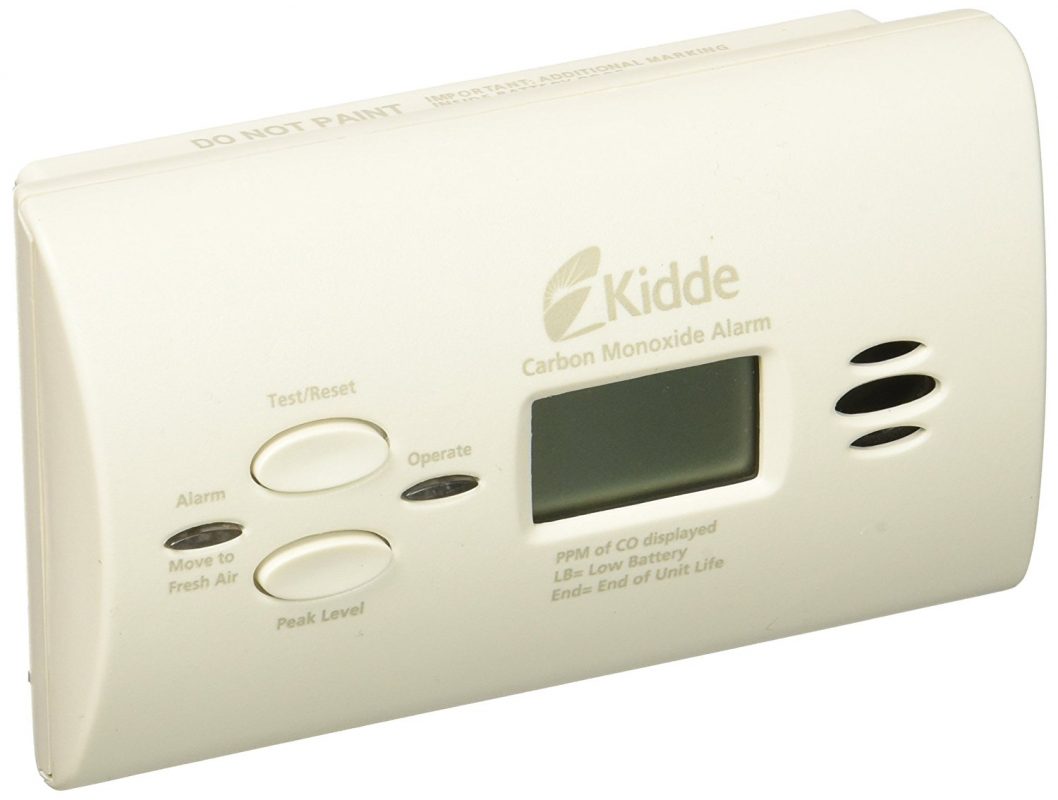Reach New Heights with 5M Telescopic Ladders 5M telescopic ladders are versatile and practical tools…
Carbon Monoxide Alarms

Safeguarding Your Home: Carbon Monoxide Alarms
Protecting your home and family from the silent threat of carbon monoxide (CO) is paramount. Carbon monoxide is an odorless, colorless gas produced by the incomplete combustion of fossil fuels such as gas, oil, wood, and coal. Exposure to high levels of CO can be fatal, making early detection crucial for your safety. Carbon monoxide alarms are essential devices designed to detect the presence of this deadly gas and provide an early warning to occupants. In the UK, where gas appliances are prevalent in many homes, the importance of these alarms cannot be overstated.
Types of Carbon Monoxide Alarms
Carbon monoxide alarms come in different types to suit varying needs and preferences:
- Battery-Powered Alarms: These alarms operate using replaceable batteries, making them easy to install and suitable for homes without hardwired systems.
- Hardwired Alarms: Hardwired alarms are connected directly to the electrical system of the house. They typically have battery backup to ensure continuous operation during power outages.
- Combination Alarms: Some alarms combine carbon monoxide detection with smoke detection for comprehensive home protection.
Key Considerations Before Buying
When selecting a carbon monoxide alarm, consider the following factors:
- Sensor Type: Choose between electrochemical and biomimetic sensors, with electrochemical sensors generally offering higher accuracy.
- Power Source: Decide whether you prefer a battery-powered alarm or one that is hardwired into your home’s electrical system.
- Display and Features: Look for alarms with digital displays, peak level memory, and test/reset buttons for ease of use.
- Interconnectivity: Consider alarms that can be interconnected to provide simultaneous alerts throughout your home.
Pros and Cons of Carbon Monoxide Alarms
Understanding the advantages and limitations of carbon monoxide alarms can help you make an informed decision:
- Pros:
- Early detection of carbon monoxide, allowing occupants to evacuate and seek medical attention if necessary.
- Easy installation and maintenance, with many models featuring self-testing functions.
- Peace of mind knowing your home is equipped with a reliable safety device.
- Cons:
- Requires periodic battery replacement or maintenance to ensure continuous operation.
- May produce false alarms due to factors such as dust, humidity, or low battery voltage.
- Initial cost and ongoing expenses associated with purchasing and maintaining alarms.
Usage Tips
To maximize the effectiveness of your carbon monoxide alarm, consider the following tips:
- Install Alarms Properly: Follow manufacturer guidelines for optimal placement of alarms, typically near bedrooms and on each level of the home.
- Test Regularly: Test your alarms monthly and replace batteries as needed to ensure proper functioning.
- Keep Clear of Obstructions: Avoid placing alarms near windows, doors, or vents, as airflow may affect their performance.
- Replace as Needed: Replace carbon monoxide alarms according to manufacturer recommendations, usually every 5-7 years.
Shopping Online for Carbon Monoxide Alarms
When shopping online for carbon monoxide alarms, look for reputable retailers that offer certified products from trusted brands. Ensure that the alarms comply with British standards (BS EN 50291) to guarantee reliability and effectiveness.
Consider reading customer reviews and ratings to gauge the performance and durability of the alarms. Look for additional features such as digital displays, battery backup, and interconnectivity for enhanced safety.
Choosing the Right One
Choosing the right carbon monoxide alarm is essential for protecting your home and loved ones. Select a model that suits your specific requirements in terms of power source, sensor type, and additional features.
If you’re unsure, opt for alarms from reputable brands with a proven track record in home safety. Remember to follow installation instructions carefully and test your alarms regularly to ensure ongoing protection.
Caring for Your Carbon Monoxide Alarm
To ensure your carbon monoxide alarm remains in optimal condition, follow these care tips:
- Clean Regularly: Dust or vacuum the exterior of the alarm periodically to prevent obstruction of the sensors.
- Replace Batteries Promptly: Replace batteries as soon as they show signs of depletion to maintain continuous operation.
- Keep Away from Moisture: Avoid placing alarms in damp or humid areas to prevent damage to the internal components.
- Follow Manufacturer Instructions: Refer to the user manual for specific maintenance guidelines and recommendations.
Frequently Asked Questions
-
- 1. Can carbon monoxide alarms detect other gases?
No, carbon monoxide alarms are specifically designed to detect carbon monoxide gas and may not detect other gases or household hazards.
-
- 2. How long do carbon monoxide alarms last?
Most carbon monoxide alarms have a lifespan of 5-7 years, after which they should be replaced to ensure continued reliability.
-
- 3. Do carbon monoxide alarms need to be installed by a professional?
No, carbon monoxide alarms can typically be installed by homeowners following manufacturer instructions. However, professional installation may be required for hardwired systems.
-
- 4. Can carbon monoxide alarms be used in caravans or boats?
Yes, carbon monoxide alarms are essential safety devices for caravans, boats, and other enclosed spaces where fossil fuel appliances are used.
-
- 5. How can I differentiate between a carbon monoxide alarm and a smoke alarm?
Carbon monoxide alarms typically have a different design or color scheme from smoke alarms and may feature the letters “CO” prominently on the device.
In Conclusion
Carbon monoxide alarms are indispensable devices for safeguarding your home against the deadly threat of carbon monoxide gas. By understanding the different types of alarms, key considerations before buying, and proper usage and maintenance tips, you can ensure your home is equipped with reliable protection. Invest in certified alarms from reputable brands, install them correctly, and test them regularly to enjoy peace of mind knowing your loved ones are safe from this silent killer.

























